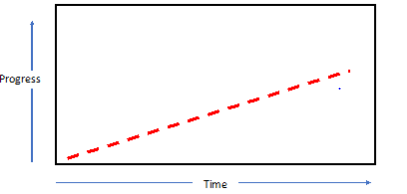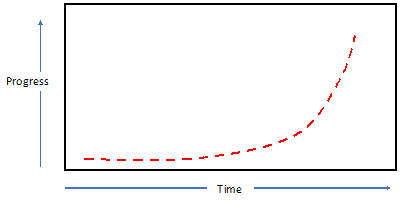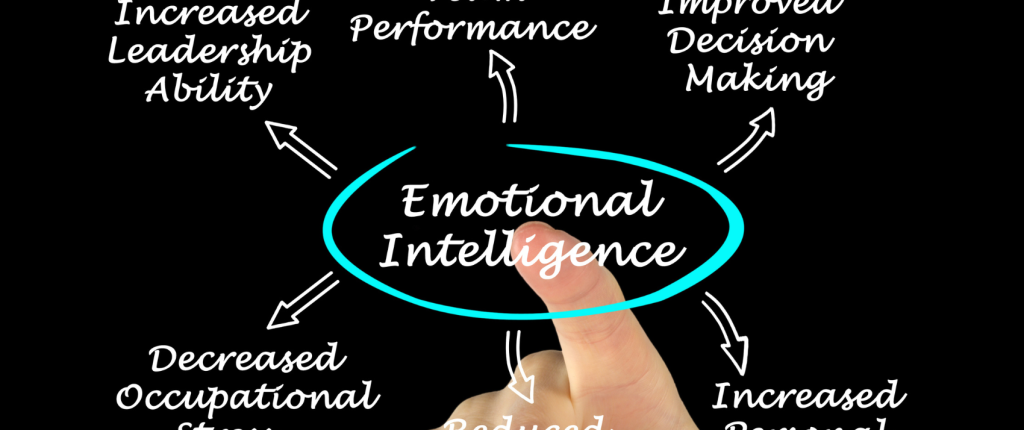How often have we set out to learn something new? It could be a language, a musical instrument, a software application, or even a fitness programme or a healthy eating lifestyle. We start off with excitement and wonder, fully motivated by what we wish we will become. And then a month or two into the programme, the wheels fall off.
Tips and Strategies for Successfully Learning a New Skill
We may go on a business trip that disrupts our routine, and we lose interest. Or, we put off our learning activity for one day, and then another and before we know it a whole week has gone by and we have achieved nothing. Or, we may be disillusioned by what seems like a general lack of progress, so we give it up and go back to the way we were before. Learning a new skill can be challenging, but with dedication and the right approach, it is certainly achievable.
In this article, we will provide insights and strategies that can help you effectively learn a new skill. Whether you’re looking to learn a new language, develop your coding skills or pick up an instrument, these tips will provide you with a solid foundation to begin your journey towards mastering your desired skill.
First and foremost, it’s important to set realistic goals for yourself. This will help you stay motivated and focused on the specific steps you need to take to achieve your desired outcome. Make sure your goals are specific, measurable, achievable, relevant and time-bound (SMART).
For example, if you want to learn a new language, your SMART goal could be: “I will learn 100 new vocabulary words in Spanish within the next 3 months by studying for at least 30 minutes every day and practising speaking with a native speaker once a week.”
Another important tip is to break down your learning into manageable chunks. For instance, if you’re learning to code, start with a small project and work up to more complex ones. This will help you build your skills gradually and prevent you from feeling overwhelmed.
Importance of Community and Embracing Mistakes in Learning a New Skill
Additionally, finding a supportive community can also greatly enhance your learning experience. Consider joining online forums or groups related to your desired skill. Here, you can connect with other learners and experts who can offer guidance, support and feedback as you progress.
Lastly, don’t be afraid to make mistakes. Mistakes are a natural part of the learning process, and they can provide valuable opportunities for growth and improvement. Remember that everyone makes mistakes when learning something new and embracing them as a chance to learn and develop your skills further is important. With these tips and strategies in mind, you can approach learning a new skill with confidence and determination.
Let’s take a look at how adults learn new things. When we start off, we have an in-built expectation that our learning will follow a linear upward curve, like the diagram below:

We expect that we will see regular continuous improvement right from the very beginning. We expect to get positive progress feedback from our very first attempt. But that’s not how we learn in real life. Our learning curve looks something like this.

Often, for a long period, we see little appreciable improvement. We are incorporating the new routine into our lifestyle, and restructuring and reallocating the time we give to other activities. To give attention to our new learning, we must do less of something else. And sometimes the old, ingrained habits die hard.
Be Patient and Allow for Brain Adaptation When Learning a New Skill
It is difficult to sacrifice 30 minutes of TV time at the end of a hard day if all we are used to is blobbing down on the sofa and escaping the world for a time. Be patient with yourself as you restructure your time utilisation around your learning activity.
Apart from learning how to spend your time differently, you have to give your brain space to adapt to the new learning. Learning something new and unfamiliar requires the development of new neural pathways in your brain. Your brain is used to dealing with processing information and solving problems in particular ways for a regular number of situations.
Now you are adding something new. And it takes time. Often you will feel frustrated. Why am I not getting this? I will never master this. When you react in this way, you should be delighted, because your brain is beginning the process of adaptation to the new learning.
The Key Takeaway from Learning
Do not expect immediate and dramatic results when you begin to learn something new. Temper your expectations and stick doggedly to your routine. If you become frustrated by what seems like a lack of progress, put that out of your mind, and do not expect to see immediate changes.
If you do see improvements, know that you are playing the long game, because, in the second curve above, you can see how it curves dramatically upwards once you have put in the time to develop a supportive routine and develop mastery of the subject. You have to tough it out. This is where you want to be.
Remember, learning a new skill takes time and effort. But with the right mindset and a patient approach, it can be an enriching experience that opens new opportunities and enriches your life in meaningful ways. So, stay committed and enjoy the journey! Whether you’re looking to advance your career or simply pursue a new hobby, the skills and strategies outlined above can help you achieve your learning goals and reach your full potential. So, don’t hesitate to start learning something new today and see where it takes you!
Learning is a lifelong process, and the more you invest in yourself, the more opportunities you’ll have to grow and thrive in all areas of your life.
The key to successful learning is consistent effort and a growth mindset. So, keep pushing yourself to learn and improve, and don’t give up even if you face challenges or setbacks. With dedication and persistence, you can overcome any obstacle and achieve your learning goals.
Links for more information:
12 Strategies for Staying Focused on Your Goal (Plus Tips). (n.d). https://www.indeed.com/career-advice/career-development/focus-on-your-goal
How to Master a New Skill – Harvard Business Review. (n.d). https://hbr.org/2012/11/how-to-master-a-new-skill
32 Ways To Invest in Yourself With Definitions and Examples. (n.d). https://www.indeed.com/career-advice/career-development/invest-in-yourself
.oOo.









